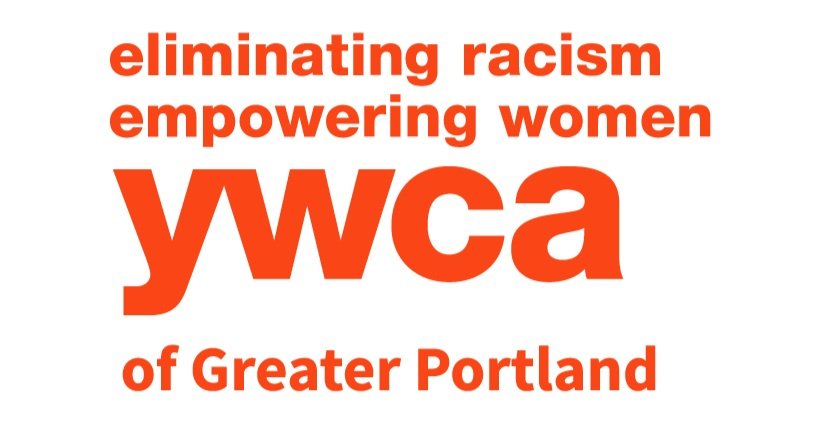COURSE DESCRIPTION
How do you know if you’re an ally? Who decides if you are? And is the goal to even be an “ally?”
In this workshop, we will pull back the layers of allyship to self-examine how our own behaviors either lean into challenging our own beliefs or lean into saviorism and performative empathy.
By the end of this workshop, you should:
Know the differences between equality and equity
Grasp what EDI (equity, diversity, and inclusion) is
Know what methods can be used to accurately assess what an underrepresented person and/or community needs
Know the differences between an ally and an accomplice
Grasp why co-conspirator ship is the beginning steps for liberation
LOCATION
Online via Zoom
PRICING AND REGISTRATION
For any questions regarding registration, our sliding scale, work-trade opportunities or accessibility needs, please contact Shay Braden at sjp@ywcapdx.org or (971) 358-6227.
ACCESSIBILITY
This class will be held online via Zoom. Please contact us to let us know if you need specific accommodations.
VIRTUAL CLASSROOM TIPS
Thanks for joining us online! Here are some suggestions for getting the most out of this workshop:
Mute your microphone. To help keep background noise to a minimum, make sure you mute your microphone when you are not speaking. When your microphone is not muted, avoid activities that could create additional noise.
Engage with the class. These are intended to be workshops, not webinars! Please come ready to engage and participate, and help build community within the “classroom.” Not everyone is able to participate via webcam, but if you are able, we ask that you do so as much as possible.
Limit distractions and avoid multi-tasking. You can make it easier to focus on the meeting by turning off notifications, closing or minimizing running apps, and muting your smartphone. You’ll retain the discussion better if you refrain from replying to emails or test messages during the meeting and wait until after the workshop ends.
Help us improve our program! Each workshop will have a brief survey sent out. All results are anonymous and help us continuously improve our program.
Take notes. Our facilitators’ own their presentation material so it is not a requirement for the presentation to be shared afterwards.
Need an accommodation? Email us so we can create an ideal learning environment for you. sjp@ywcapdx.org
GROUP PARTICIPATION FRAMEWORK & AGREEMENTS
While guidelines and expectations will vary from workshop to workshop, most of these apply to a typical workshop session:
One speaker at a time. When one person talks, everyone else listens.
Community wisdom. Nobody knows everything, together we know a lot.
Take space & give space. Be mindful of how much you’re participating in the discussion.
Intent vs. impact. Before sharing, consider how what you say will affect others in the group.
Confidentiality. Details shared in the class stay in the class, but what’s learned goes with you.
Active participation. In this environment, it’s better to be open and imperfect than worry too much about being overly articulate.
Embrace discomfort and expect non-closure. Learning and growth can be stressful, do your best to hold space for those feelings.
PRESENTER AND CONTACT INFO
Presented by: Ruby Joy White
Ruby Joy White (prince|they\she) – Creative. Sociologist. Writer. Social Equity Strategist & Facilitator
Ruby Joy White is a generationally-mixed Black diasporic, sapphically-inclined, gender queer, neurodivergent person. They describe themself as being half creative, half sociologist. She holds degrees in Journalism and Sociology from the University of Northern Colorado, an (in progress) certificate on Arts and Culture Strategy from the University of Pennsylvania and National Arts Strategies, as well as a transformational leadership certificate from Imagine Black (formerly the Portland African American Leadership Forum) and Restorative Justice training.
Ruby has extensive experience in anti-racist and social equity work, sociological practice (specifically within family dynamics, family violence, trauma, dynamics of poverty, s*xual assault and domestic violence advocacy, and social systems), education & curriculum development, writing, painting and drawing, cultural and creative curation, arts administration, community engagement, data assessment & research, employment policy, program development, design, editing & layout, strategic planning, leadership transmogrification, recruitment, and organizational development.
Currently, Ruby serves as the Director of Community Events, Education, and Culture for Portland’5 Centers for the Arts as part of Oregon Metro, a regional governmental agency. Ruby is also a board member of the Contemporary Art Council at the Portland Art Museum, board member of the Alberta Abbey, Hey Doc Clinic Advisory Council, and member of Imagine Black.
Ruby’s foci when working with organizations is to address blatant acts of racism/discrimination, the dismantling of organizational culture rooted in White Supremacy, patriarchy, misogyny and sexism, homo and transphobia, and ableism. Ruby infuses techniques in analyzing power and power structures, anti-Black and anti-Indigenous actions, utilization of trauma-informed assessment, and to collectively work with staff to create and identify goals, outcomes, and overall strategies to infuse social equity into the very foundation of the organization, including recruitment and retention efforts.
Contact Us
Email: Christina at christinaf@ywcapdx.org or Shay at shayb@ywcapdx.org
Phone: (503) 294-7395
SOCIAL JUSTICE PROGRAM EQUITY PROMISE
The Social Justice Program will operate in conjunction with the YWCA of Greater Portland’s Equity Policy. We will provide our community workshops centered around domestic & sexual violence, racial equity, and gender equity by addressing oppressive tactics used on both individual and institutional levels. This program will actively confront white supremacist culture by dismantling as many oppressive systems within its’ power through organizational culture, policies, and procedures. We will build each other up by amplifying voices from marginalized communities and with sociocultural identities. How do we manage to tackle all of these goals? By changing the way we think and act to collectively embrace equity, diversity, inclusion and belonging.

